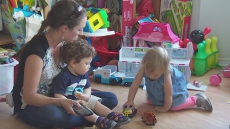Would you pay Rs 1,000 extra for your international air travel towards helping curb carbon emissions? According to researchers, air travellers respond better if they know the producers and importers of airplane fuel have been billed for it -- not just themselves.
How the carbon emmission fee is presented at the time of ticket purchase is the key to consumer acceptance and people respond better when the fee is labeled as a carbon offset rather than a tax, said the study from the University of British Columbia's (UBC) Sauder School of Business has found.
"People have the perception that the oil companies are the ones responsible for climate change, or at least more responsible than they are," said study co-author David Hardisty.
"Consumers are more supportive of carbon pricing if it's directed at the fossil fuel producers and importers than if it's directed at consumers".
The study, conducted in partnership with the Environmental Defense Fund, consisted of two separate online surveys of more than 1,800 US participants.
"We wanted to gauge consumers' reaction to a $14 (nearly Rs 1,000) carbon fee that was presented to them in several different ways at the time of a hypothetical ticket purchase," explained study co-author Alec Beall.
The dollar amount of the charge was the same but it was described as either a 'carbon offset' or a 'tax,' for either 'aviation fuel production and import' or 'airplane travel'.
The words mattered.
Consumers were consistently more likely to choose a flight that included a carbon price when it was described as a "carbon offset for aviation fuel production and import" instead of a "carbon tax for airplane travel."
Importantly, consumers even chose more expensive tickets with a fee described this way over cheaper tickets that had no extra $14 fee attached at all.
"Taxes feel like you're charging people money for nothing," said Hardisty.
"Whereas an offset is the idea that, 'Sure we're paying, but we kind of have an idea where that payment is going, to make the environment better,' which is what people want".
Once consumers understand that a flight costs more because its price includes a carbon offset, they are likely to choose that flight and pay their part of the offset.
The findings, published in the Journal of Environmental Psychology, suggest a path forward for the global airline industry which is a significant and growing source of carbon emissions. In the absence of policy changes, emissions from air travel are on track to triple over the coming decades.





